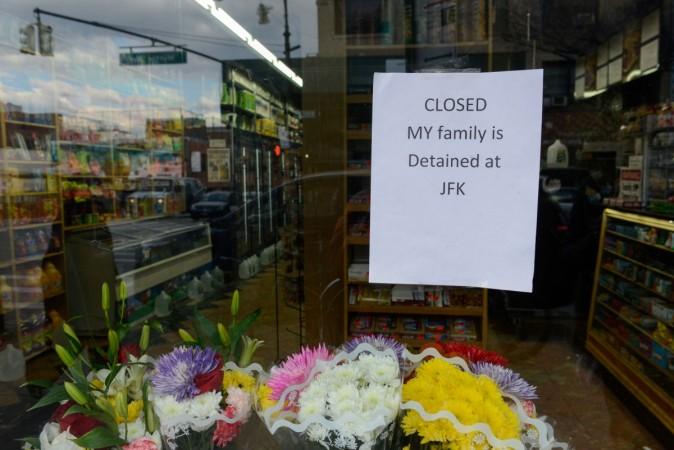
A US appeals court rejected the White House' request to reinstate a travel ban that was blocked by a federal judge on Friday.
Also read: Donald Trump fumes, vows to act, after judge lifts travel ban
Justice James Robart had suspended the travel ban that stopped people from seven Muslim-majority countries -- Iraq, Syria, Iran, Libya, Somalia, Sudan and Yemen -- from entering the US. US President Donald Trump, while promising to win the court battle, questioned the judge's intentions.
"We'll win. For the safety of the country, we'll win," the US President told reporters on Saturday at his private Mar-a-Lago resort in Palm Beach, where he is spending the weekend.
"The opinion of this so-called judge, which essentially takes law-enforcement away from our country, is ridiculous and will be overturned!" he said.
"What is our country coming to when a judge can halt a Homeland Security travel ban and anyone, even with bad intentions, can come into U.S.?" he wrote in another Tweet.
On Sunday morning, the challenge to the suspension of the ban was rejected. The ban remains suspended until the case is heard.
In the notice, the President's lawyers argue that the injunction issued by Judge Robart "immediately harms the public by thwarting enforcement of an Executive Order issued by the President, based on his national security judgement."
The State Department and Homeland Security acted swiftly to the suspension of the travel ban and all valid visas that were cancelled after the initial executive order were reinstated. The State Department said that less than 60,000 visas were cancelled physically, which were then reissued.
The White House and the states challenging the suspension have time till Monday to present arguments in favour of the travel ban.
The Justice Department said that Robart overreached by "second-guessing" the president on a national security matter. They also argued that only the president can decided about whom to allow into the country.
After the travel ban suspension, refugees and travellers from the initially banned countries hurried to reach the US before Monday.










